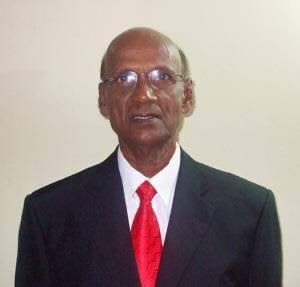The politics of self

DR ERROL NARINE BENJAMIN
IN MY recent letter entitled “Blissful ignorance, painful insight,” I expressed my disillusionment, not knowing where to turn, over our brand of politics in this country in which we as a people are unquestioningly loyal to our leaders for the rewards to be had for that loyalty, and how they in turn exploit that loyalty to the fullest to sustain themselves in office.
In hindsight, though, I feel that sharing my insight and understanding of what we have become in the politics will rouse us into a new awakening for the good of this country.
Historically, the two major races, Africans and Indians, would have started off with suspicion between them, with the recently freed African slaves wary of the incoming indentures jeopardising their bargaining power with the planter class (Ralph Premdas: Ethnicity, Identity and Culture in the Caribbean).
That original antipathy would have later, after independence, transformed itself into two race-based parties, the PNM for Africans and the DLP/UNC for East Indians, and it has remained that way ever since. With the politics becoming ethnic-based, the issue of national unity for the national good involving the major races simply went out of the window.
This had a profound effect on the thinking of both groups, for concern for the common national good never really mattered, only loyalty to the party and its leadership on both sides of the divide to the detriment of the society as a whole.
It is perhaps useful to speculate that had there been a political system like proportional representation or any other such where, theoretically, ethnic voting is less likely to thrive as against the current first-past-the-post system, it is likely that our people would have developed the character to ask questions of their leaders in the interest of the national good.
And this evolving propensity to vote “tribe” was reinforced by what I would describe as a “lapse" in character in the population at large of seeking to advance the "self” instead of the national good, everyone, at every level of the society, from labourer to top government official, wanting to feed off the trough to obtain the metaphoric "mess of pottage” in exchange for their loyalty, which questioning their leaders would only jeopardise.
The character associated with wanting to make informed decisions for the good of the nation has given way to an unquestioning loyalty to advance the self.
And the leadership knows this, exploiting this simple-minded loyalty to the fullest, full in the knowledge that with the tribal vote assured, they can say and do as they please, even to the point of arrogance as many writers have been claiming in letters on two recent issues, the first on crime and the other on national emblems.
On the first, the fact that the leadership could disclaim any responsibility for crime, passing it on to the criminals themselves, and on the second, calling all those who differ on the official handling of the issue of national emblems as “idiots,” show an utter contempt for public opinion, due in no small measure to the awareness of the little political consequence for such contempt since the tribal vote is assured no matter what they say or do.
And not only the leadership in governance. The other side is often contemptuous of any opposition to change as recent events illustrate when all logic and good sense that such change is necessary, the leadership seeking to sustain itself at all cost even as the tribe in its servile loyalty seems, again for whatever rewards are to be had, destined to wilt in opposition.
It’s just a symptom of the disease of our divisive politics, fostering a “you scratch my back and I yours” syndrome between leaders and their respective tribes, as the nation totters on the edge of a precipice in more ways than one.
Leaders become wolves only because those whom they lead are sheep, but the hope is that with a better understanding of the way our system works, there will be more of those who will awaken from their political slumber and begin to pave the way for a brave new world in this little paradise of ours.

Comments
"The politics of self"